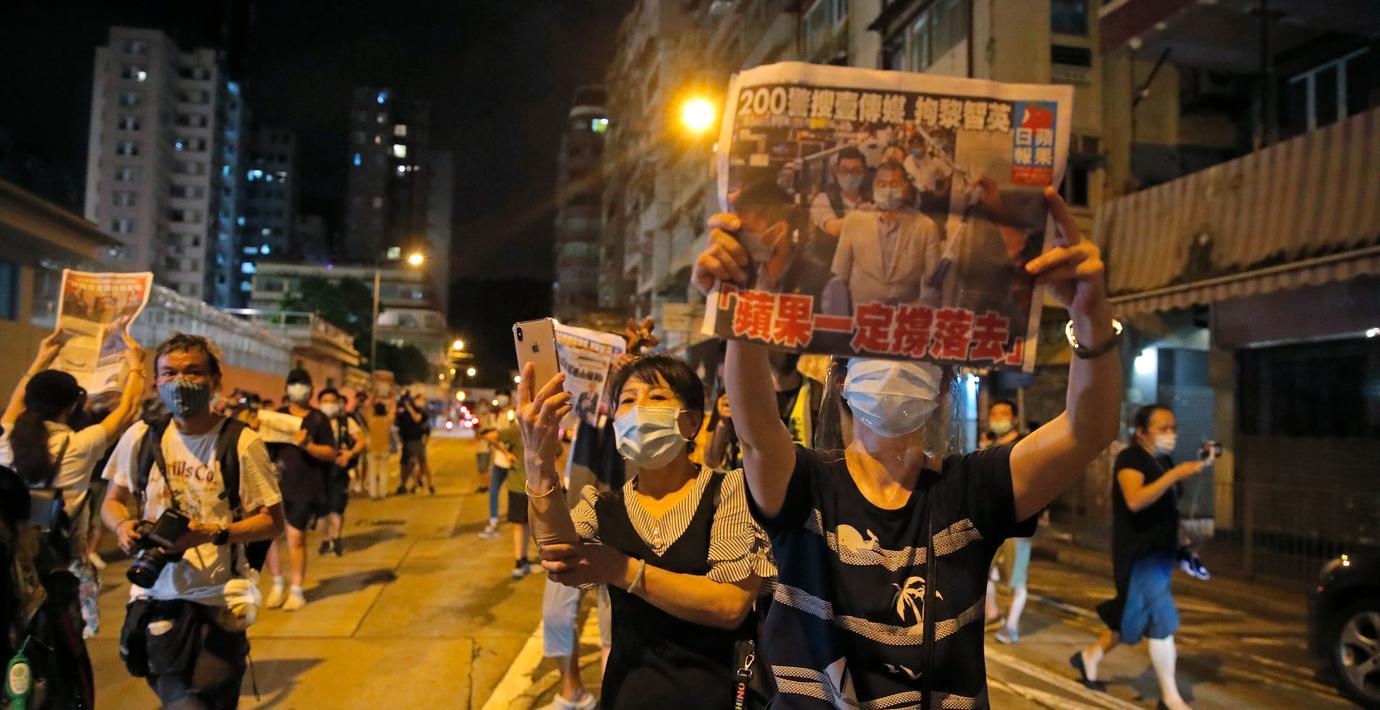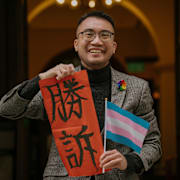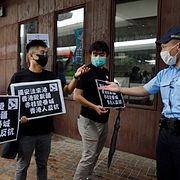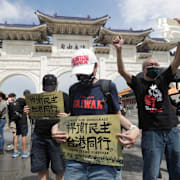
FN uppmanar Hongkong att häva säkerhetslagen
FN:s människorättsorgan OHCHR varnade på torsdagen för att läget i Hongkong försämras efter den säkerhetslag som Peking införde för två år sedan, rapporterar AFP.
OHCHR är ”djupt oroade över den överdrivet breda tolkningen och godtyckliga användningen av lagen, heter det i ett uttalande. FN-organet uppmanar Hongkong att ”ta konkreta steg för att upphäva lagen och, under tiden, inte använda den”.
Säkerhetslagen, som trädde i kraft den 30 juni, reducerade Hongkongs autonomi och gav Peking utökade möjligheter att lagföra kritiker och oliktänkande.
bakgrund
Hongkongs säkerhetslag
Wikipedia (en)
The Hong Kong national security law, officially the Law of the People's Republic of China on Safeguarding National Security in the Hong Kong Special Administrative Region (HKSAR), is a piece of national security legislation concerning Hong Kong. It was passed on 30 June 2020 by the Standing Committee of the National People's Congress as a means of suppressing the anti-extradition bill protests instigated by a bill proposed in 2019 to enable extradition to the mainland, and came into force the same day.Among others, the national security law established four particular crimes of secession, subversion, terrorism, and collusion with foreign organisations; any open speech, verbal promotion or intention of Hong Kong's secession from China is considered a crime as well. The implementation of the law entitles authorities to surveil, detain, and search persons suspected under its provisions and to require publishers, hosting services, and internet service providers to block, remove, or restrict content which the authorities determine to be in violation thereof. The law established an office outside of Hong Kong jurisdiction to administer enforcement of the law.Article 23 of the Hong Kong Basic Law, which came into force with the British handover of Hong Kong in 1997, requires that a national security law with some of these provisions be enacted by the Hong Kong Special Administrative Region. Before the 2019–2020 protests and passage of the law, a 2003 attempt by the Hong Kong Legislative Council to satisfy Article 23 failed after mass demonstrations. Both the 2003 attempt at and the 2020 passage of legislation occurred during outbreaks of a novel coronavirus (SARS and COVID-19, respectively), which affected the actions of both protesters and authorities.
The United Kingdom and 26 other countries, mostly in the West, as well as Japan, condemned the national security law; the United Kingdom called it a breach of the 1984 Sino-British Joint Declaration, which provided autonomy for Hong Kong to be retained for 50 years. The imposition of the national security law move prompted measures to put forward relaxed immigration laws for Hong Kong migrants by countries such as Australia, Canada, the United Kingdom and the United States. The controversial law has also garnered particular attention to its Article 38, which states that the law is applicable also to those who are not permanent residents of Hong Kong, and to those who do not reside there; the provision has been interpreted by some as saying that it is applicable to every individual in the world.
Omni är politiskt obundna och oberoende. Vi strävar efter att ge fler perspektiv på nyheterna. Har du frågor eller synpunkter kring vår rapportering? Kontakta redaktionen



